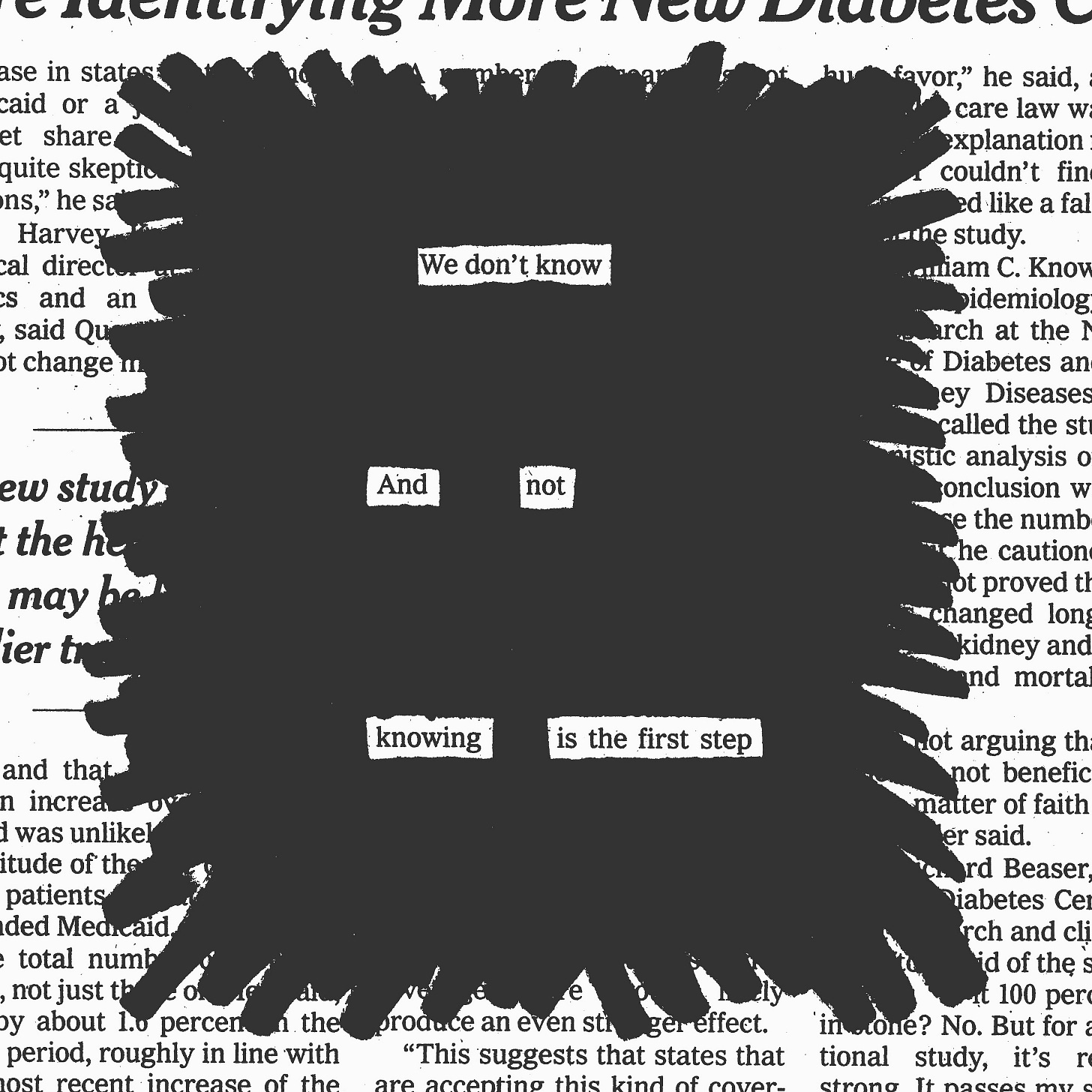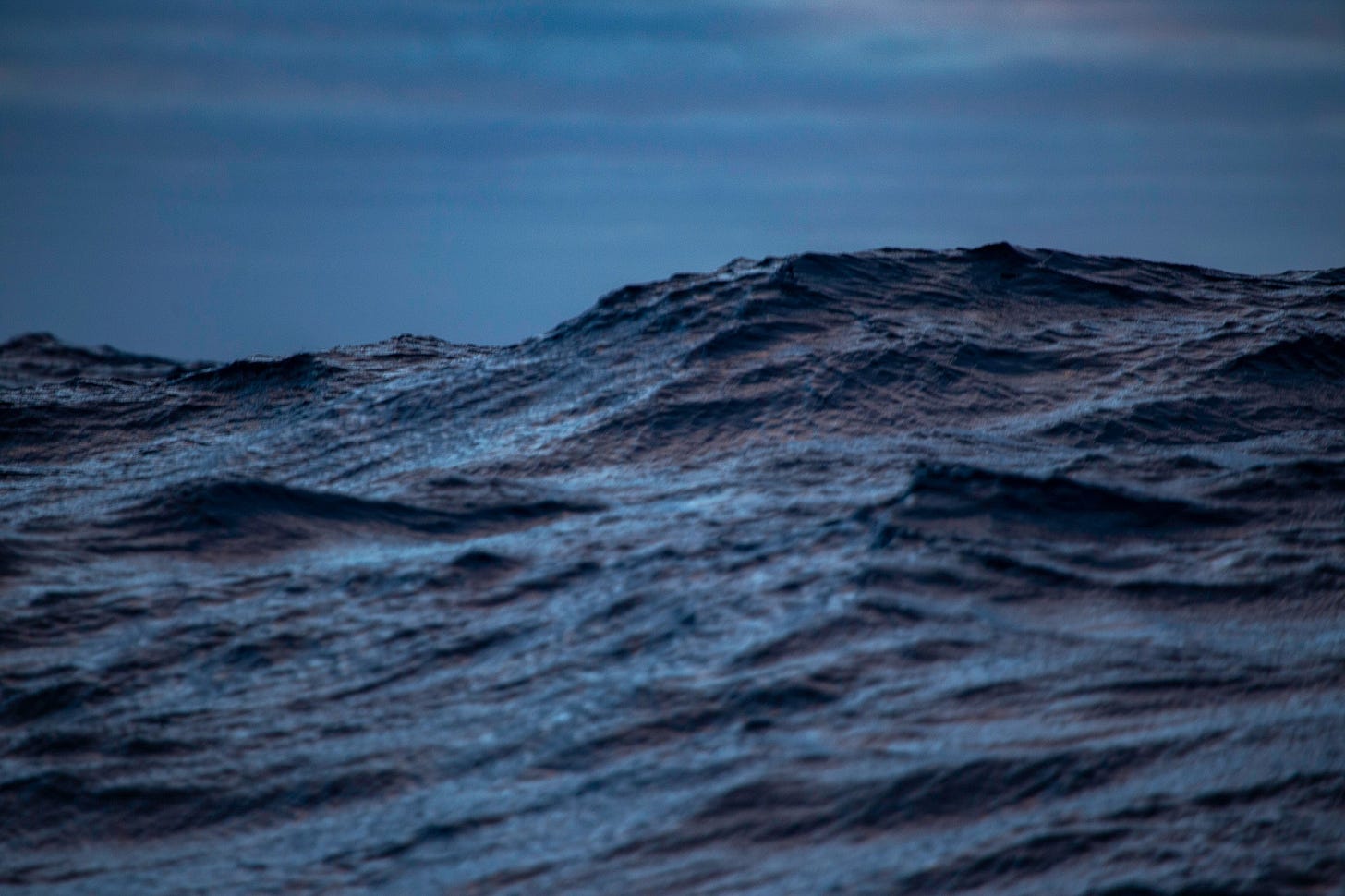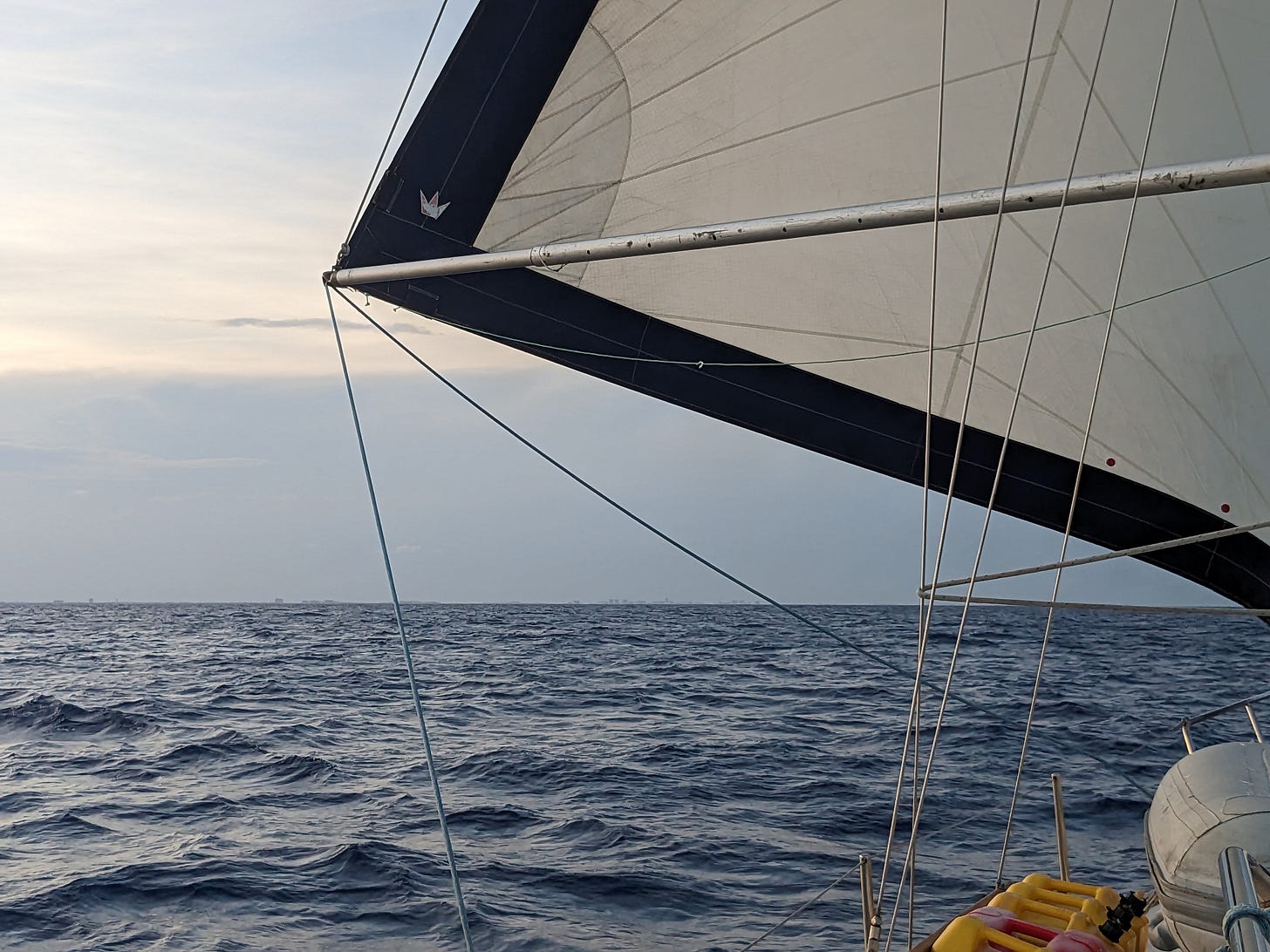This is Clouds Form Over Land, weekly writing about life at sea and going ashore.
There are almost no lifeforms that live on the surface of the ocean.
Those that do are an exuberant bunch (sailors, dolphins, flying fish, etc), thriving in that liminal space, at home in the everchanging boundary of air and water.
Living on a sailboat and moving with the weather requires one to be as easy-going and quick-moving as the sea itself. Affixing an action to a time on the calendar is a fool’s errand and desiring a particular product, experience, or outcome can be just as futile while living as a guest in another culture. We honed our ability to enjoy what was available and easy, to move with favorable weather, and to rest up for the unexpected and unavoidable.
On land, we can linger longer away from one another and pick up side quests.
At sea, our priorities simplify to progress along the route and the crew’s morale.
The practice of sailing a boat from port to port reacquainted me with my capacity. Like many, the pandemic collapsed my work and home life into a slurry of everything, all at once. The stakes for experiencing burnout on board can be life and death, rather than another evening of screentime. I found we could do more by doing a lot less, dancing between choice and all that’s outside our control.
Eight years living in a fiberglass sailboat taught me to be just as sensitive and sturdy.
After 2,000 hours in the open ocean, I’m quicker and slower to react. Less judgemental and more discerning. Comfortable sitting in ambiguous uncertainty, so long as there is some clear objective. Hyper-focused on getting to the next step. Forever learning to enjoy the reality of the present.
Folks say “live in the moment!” and “it’s the journey, not the destination!”. These quick quotes have sunk into my bones after piloting a vessel around the North American continent. We moved at a top speed of eight miles an hour over a distance equivalent to 36% around the earth. The time went by in four-hour shifts, passed between me and my love. Each changing of the watch included a debreif on nearby vessels, emerging weather, and snacks.
The present moment is almost more meldable than the future. The now is flooded with the stimulation of creatures and our habitats. When out at sea, I can look around and see nothing in the 360 degree view, then look again and meet thousands of shimmering waves and clouds morphing and moving overhead. The only signs of humanity are those that I brought along for the ride or occasional ships on the horizon.
My teacher/friend Dahlia shared these words that Rumi spoke in the 7th century:
“Just to be held by the ocean is the best luck we could have. It is a total waking-up.”
After years of wondering if we had what it takes to sail here, we have this sudden assurance that we did. In the final weeks, we looked for an “all downhill from here” feeling and never found it. This was the hardest thing either of us has done yet — difficult and doable at every turn. Despite all of the knowledge gaps, foul moods, and other flaws, we did it. We made it through every notorious cape and weather system, countless bouts of seasickness and mechanical failures, stacks of official paperwork in my second language, and two years of facing ourselves in the vacuum of a vessel. The voyage was full of ease and intensity.
Five weeks ago, we motored through the Great Dismal Swamp and entered the Chesapeake Bay. Hurricane season is here and our journey is complete. We signed annual leases with a marina and a land lord, registered to vote and drive in Virginia, and reacquainted ourselves with hot showers and air conditioning.
The question of “what’s next” met us at the finish line, with a sturdiness and urgency that’s possible on land, but not sea.

Not knowing is so uncomfortably truthful.
After years of staying the course and clearing away obstacles, we can follow new curiosities and create routine. We can say, “cya next week!” with reasonable certainty and run our days with an online calendar tool, rather than a weather model. We can make new choices and contribute our skills, experiences, and quirks to the collective.
I suspect that I’m not the only one learning to live on land. Grappling with a changing climate and society, while gathering the resources required to live and perhaps thrive. Sifting through what’s happened so far and what else we’d like to create before our time is up. Trying to connect and have some fun, trying to set a sustainable pace.
I’m finding some stability in thinking seasonally.
This is our sixth summer in a row due to the route through the tropics. It feels like we’ve been in a soup of humidity forever, but I know the days are getting shorter, even if they aren’t getting cooler yet.





Amazing!